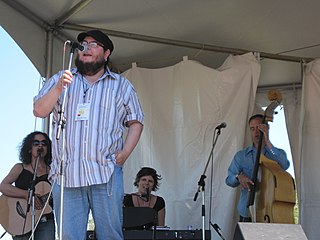A Quote by Daniel Handler
You may be right,' she said, a phrase which here meant 'I’m wrong, but I don’t have the courage to say so.
Related Quotes
The freedom of speech and the freedom of the press have not been granted to the people in order that they may say things which please, and which are based upon accepted thought, but the right to say the things which displease, the right to say the things which convey the new and yet unexpected thoughts, the right to say things, even though they do a wrong.
I asked a girl who came from America to England, when I was only English, and she admitted she had been to a drama school. And I said, "What did they teach you?" And she said, "They taught me to be a candle burning in an empty room." I'm happy to say she was laughing while she said it, but she meant it. I've never learned to be a candle burning in an empty room. So I go on the screen, and I say whatever I'm told to say.
I cannot say to you what is right or wrong. I can say only one thing to you: be conscious - that is right. Don't be unconscious because that is wrong. And then whatsoever you do in consciousness is right. But people are living in unconsciousness. And let me tell you: in unconsciousness you may think you are doing something right, but it can't be right. Out of unconsciousness, virtue cannot flower; it may appear virtuous but it can't be. Deep down it will still be something wrong. If you are unconscious and you give money to a poor man, watch: your ego is strengthened. This is sin.
That which is wrong under one circumstance, may be, and often is, right under another. God said, 'Thou shalt not kill'; at another time He said, 'Thou shalt utterly destroy.' This is the principle on which the government of heaven is conducted—by revelation adapted to the circumstances in which the children of the kingdom are placed. Whatever God requires is right, no matter what it is, although we may not see the reason thereof till long after the events transpire.
[Indira Gandhi] looked tired that day, and all of a sudden I exclaimed, 'Deep down I don't envy you, and I shouldn't like to be in your place.' And she said, 'The problem is not in the problems I have, it's in the idiots around me. Democracy, you know...' I now wonder what she meant by that unfinished phrase.
Decisions are constantly before us. To make them wisely, courage is needed-the courage to say no, the courage to say yes. Decisions do determine destiny. I plead with you to make a determination right here, right now, not to deviate from the path which will lead to our goal: eternal life with our Father in Heaven.
My mother had said me, "All right, you've been raised, so don't let anybody else raise you. You know the difference between right and wrong. Do right. And remember - you can always come home." And she continued to liberate me until she died. On the night she died, I went to the hospital. I told my mom, "Let me tell you about yourself. You deserved a great daughter, and you got one. And you liberated me to be one. So if it's time for you to go, you may have done everything God brought you here to do."
Shouldn't that be flipped right-side up?" I asked. "No," she said, eyes on the cards. After several moments of heavy silence, said, "You will destroy that which is undead." I waited about thirty seconds for her to continue, but she didn't. "Wait, that's it?" She nodded. "That's what the cards say to me.
She'd always known he loved her, it had been the one certainty above all others that had never changed, but she had never said the words aloud and she had never meant them quite this way before. She had said it to him, and she hardly knew what she had meant. They were terrifying words, words to encompass a world.
What I said was I’ll miss you what I meant to say was I love you what I wanted to say was that I meant what I said and it’s funny how all those things I could have said flooded my head after we said goodbye and I should have told you I’d be willing to hold you until my flesh crumbles into bone because I’m willing to die alone but god knows I don’t want to live that way.
I love you, Eliza,” I said. She thought about it. “No,” she said at last, “I don’t like it.” “Why not?” I said. “It’s as though you were pointing a gun at my head,” she said. “It’s just a way of getting somebody to say something they probably don’t mean. What else can I say, or anybody say, but, ‘I love you, too’?
As he was about to leave, she said, "Murtagh." He paused and turned to regard her. She hesitated for a moment, then mustered her courage and said, "Why?" She though he understood her meaning: Why her? Why save her, and now why try to rescue her? She had guessed at the answer, but she wanted to hear him say it. He stared at her for the longest while, and then, in a low, hard voice, he said, "You know why.

































